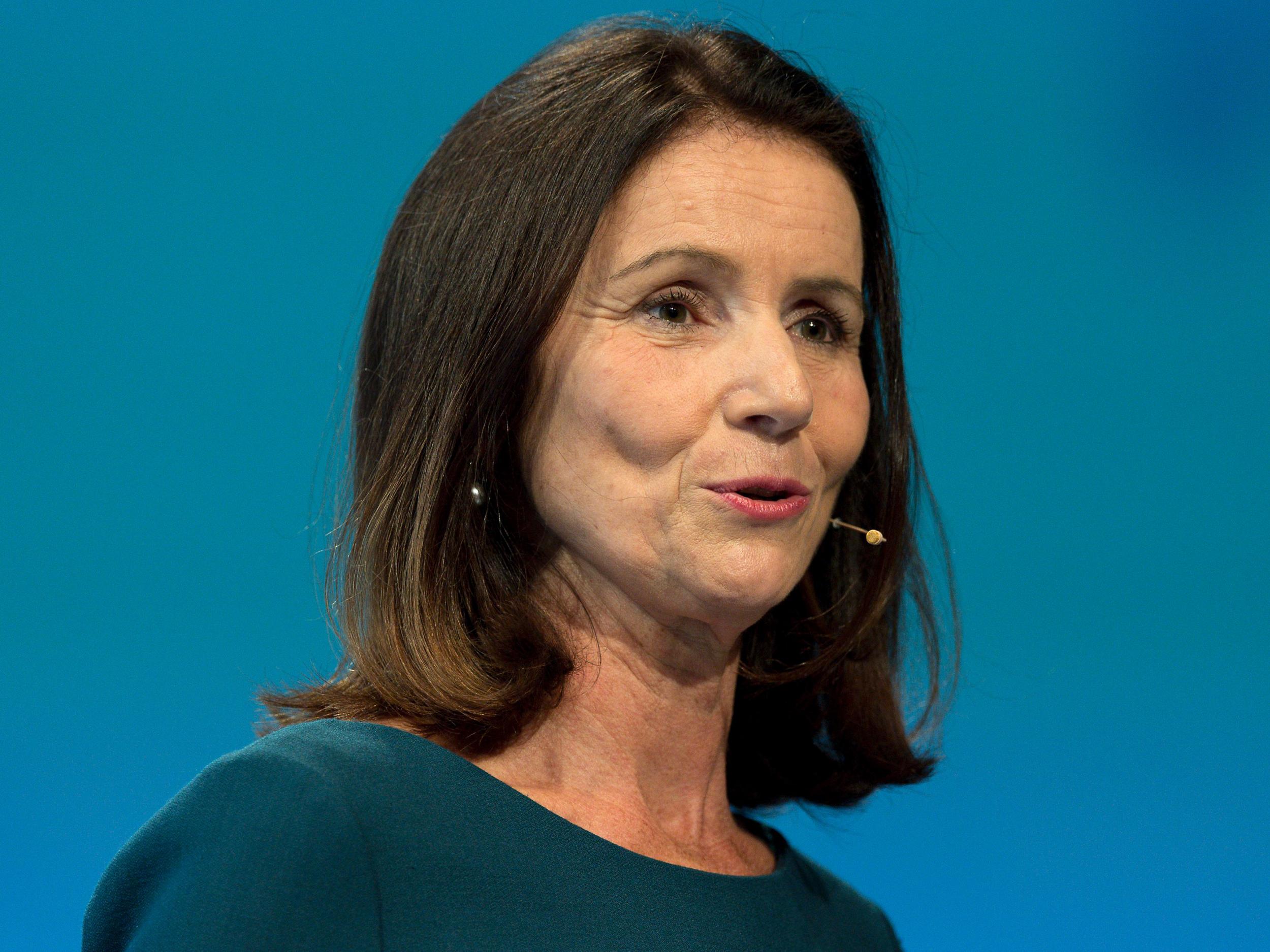Government must help make electric cars affordable in ‘greatest challenge since space race’, CBI says
Exclusive: Director-general Carolyn Fairbairn calls for support for the burgeoning industry as prime minister announces funding to boost research into green vehicles, new batteries and low carbon technology

Your support helps us to tell the story
From reproductive rights to climate change to Big Tech, The Independent is on the ground when the story is developing. Whether it's investigating the financials of Elon Musk's pro-Trump PAC or producing our latest documentary, 'The A Word', which shines a light on the American women fighting for reproductive rights, we know how important it is to parse out the facts from the messaging.
At such a critical moment in US history, we need reporters on the ground. Your donation allows us to keep sending journalists to speak to both sides of the story.
The Independent is trusted by Americans across the entire political spectrum. And unlike many other quality news outlets, we choose not to lock Americans out of our reporting and analysis with paywalls. We believe quality journalism should be available to everyone, paid for by those who can afford it.
Your support makes all the difference.Electric cars present the greatest technical challenge since the space race, and one that must be embraced wholeheartedly by the government, according to one of the UK’s top business leaders.
Carolyn Fairbairn, director-general of the Confederation of British Industry, will address an audience of international ministers and businesspeople at a major summit in Birmingham on Tuesday.
In her speech she will lay out the importance of government support in making electric cars affordable and ensuring British cities can support them.
She will also note the enormous societal shift and the scientific advances that would be required to make the UK a world leader in low emission vehicles, as promised by government ministers.
Building the vehicles is only half the story, she will explain, as people must be sufficiently motivated to “move away from a technology that has defined our lives for a century”.
“It’s here that government has a vital role to play. Through making vehicles affordable and by joining forces with business to invest in charge points across our road networks,” she will say.
“Governments can help design the zero-emission vehicle ecosystem that makes the low-emission choice the easy choice.”
Some cities around the world have already begun to embrace this change by providing special carpooling lanes open to electric vehicles, or free parking for electric cars.
Road traffic is a major contributor to the toxic air pollution that is choking many cities across the UK, and the transition to electric vehicles will help tackle this problem.
Switching to electric cars is also considered a vital step in meeting the country’s climate targets, and new research suggests that currently available vehicles are already poised to make a big dent in greenhouse gas emissions.
However, Ms Fairbairn will emphasise the need for more research and international collaboration to push this technology even further.
“The transition to zero-emissions presents the greatest set of technical challenges since the space race,” she will say.
“And like the space race, they’re not challenges business or the government can solve alone. There’s a vital third partner: our universities.”
The talk comes as Theresa May unveils a £106m funding boost for research and development in green vehicles, new batteries and low carbon technology.
This will be supported by an additional £500m worth of investment from key industries in the sector.
The prime minister will deliver a speech in which she outlines her desire to “put the UK at the forefront of the design and manufacturing of zero emission vehicles”.
“These measures will drive the design, use, uptake and infrastructure necessary for cleaner, greener vehicles – and in doing so, it will help us drastically reduce a major contributor to our global warming emissions, as we seek to meet the Paris climate change agreement,” she will say.
Transport secretary Chris Grayling revealed the government’s long-awaited “Road to Zero” strategy in July, which lays out a plan for phasing out the country’s high polluting petrol and diesel vehicles.
While campaigners welcomed the ambition to make the UK a leader in electric car manufacturing, they said the 2040 ban on sales of new fossil fuel-driven cars and vans was too far into the future and called for a more pressing target.
“If we are to protect nature from the increasing threats of climate change, we must be truly ambitious in cutting our emissions and aim for 100 per cent electric vehicle sales by 2030,” said Tony Juniper, executive director of advocacy and campaigns at WWF.
A coalition of businesses have added their voices to these calls, signing an open letter to the prime minister urging the government to be more ambitious with its targets.
“Taking the right action now would show clear global leadership and enable the UK to continue to be a leading market for low carbon transport,” said Lawrence Slade, chief executive of the trade association Energy UK, which was one of the letter’s signees.
At the summit, the government is also expected to unveil the “Birmingham Declaration” – already signed by nations including Italy, France and Denmark – that it hopes will drive a global transition to cleaner vehicles.
Join our commenting forum
Join thought-provoking conversations, follow other Independent readers and see their replies
Comments